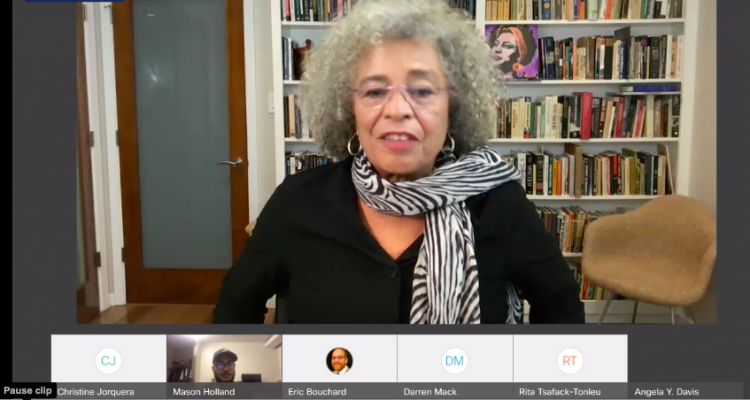By Grace McFadden
The Undergraduate Student Government at the University of Connecticut started the Justice Now Initiative with a series of speakers giving talks about topics pertinent to Black History Month. This initiative focuses on bringing racial justice to the UConn campus using the resources at USG’s disposal.
This initiative was spearheaded in part by USG Student Development Advocacy Director Christine Jorquera, a sixth-semester psychology and human rights major.
“The Justice Now Initiative is centered around social, political and cultural topics related to the Black experience rooted in collaboration and activism to create a space for reflection and community,” Jorquera said.
Jorquera explained that she was motivated by the Black Lives Matter protests over the summer to make an impact in her community.
“I knew that there was something I wanted to do to bring advocacy, activism, etc. to any initiatives that I went into and spaces I was able to enter,” Jorquera said.
Then, at the beginning of the fall 2020 semester, Jorquera took on the role of Student Development Director.
“This committee pertains to the cultures and backgrounds of the student body, so why not create a specific initiative that is for and by the Black community,” Jorquera said.
At the same time, second-semester English major Darren Mack was starting his first term as a USG Senator for the Alumni Quadrangle. Mack explained that from the beginning, he wanted to make his time in USG count.
“I wanted to be an active participant in the organization. And I remember thinking, ‘what if I got Angela Davis to come here,’” Mack said.
Mack then reached out to the Student Development Committee in USG. From there, Mack, Jorquera and USG Senator and eighth-semester finance major Rita Tsafack-Tonleu were able to establish the speaker series for Black History Month.
Davis ended up as the first speaker in the series, addressing the university on Feb. 1. Davis’s talk focused on modern day abolitionist movements.
“Our history continues to be haunted by slavery. At virtually every historically junction when we have collectively considered issues of justice, and democracy, the question of slavery has arisen,” Davis said in her opening keynote.
The Justice Now Initiative also hosted speakers Ilyasah Shabazz, daughter of Malcolm X, Eddie Glaude and Martin Luther King III. Glaude’s talk on Feb. 15 focused on education disparities for Black and brown children. Glaude is a Professor of African American Studies at Princeton University. King, the son of civil rights activist Martin Luther King Jr., focused on race and politics in America in his talk on Feb. 18.
Shabazz gave a talk on Feb. 11 focused on her father’s legacy and modern activist movements.
“My father said, ‘If you stick a knife in my back nine inches and pull it out six inches, there’s no progress. If you pull it all the way out, that’s not progress. Progress is healing the wound that the blow made. But they haven’t pulled the knife out, much less heal the wound. They won’t even admit the knife is there,’” Shabazz said. “And although this last year brought some successes, like the toppling of confederate monuments, the knife of systemic racism remains firmly in Black America’s back.”
Both Mack and Jorquera made it clear that they were not the only ones involved in this initiative. Jorquera credited the UConn chapter of the NAACP with helping with the initiative. The first talk was moderated by fourth-semester political science major and UConn NAACP president Mason Holland.
“I also want to give credit to my deputy director Rita Tonleu, as well as Senator Darren Mack. They’ve been vital and essential to the Justice Now Initiative,” Jorquera said.
Jorquera emphasized that this isn’t the end of the initiative.
“The Justice Now [Initiative] is not just speakers,” Jorquera said. “In our opinion, this is just the beginning of what the Justice Now Initiative looks like.”
Mack agreed, saying that the initiative’s goals will go beyond just this speaker series.
“I think I can speak for everybody in saying we didn’t want the Justice Now Initiative to essentially a Black History Month thing. I think that justice should be sought all the time and wherever it can be,” Mack said.
More information about the initiative can be found at usg.uconn.edu/justice-now-initiative.


